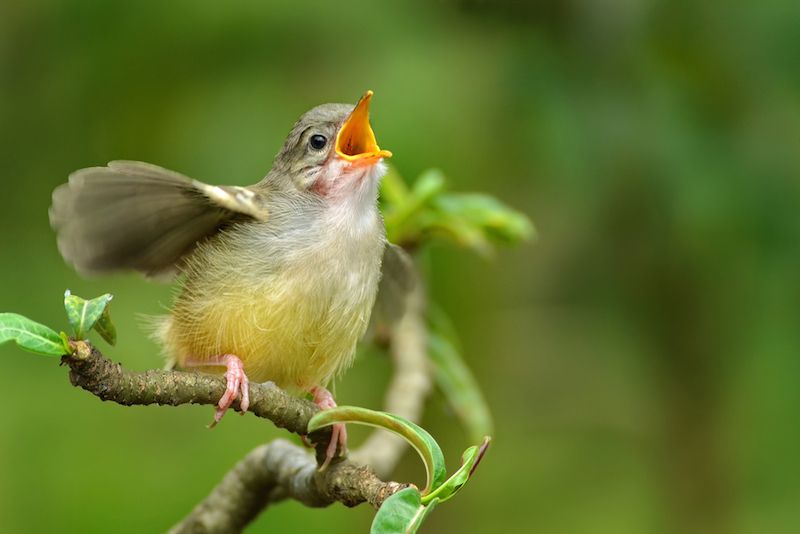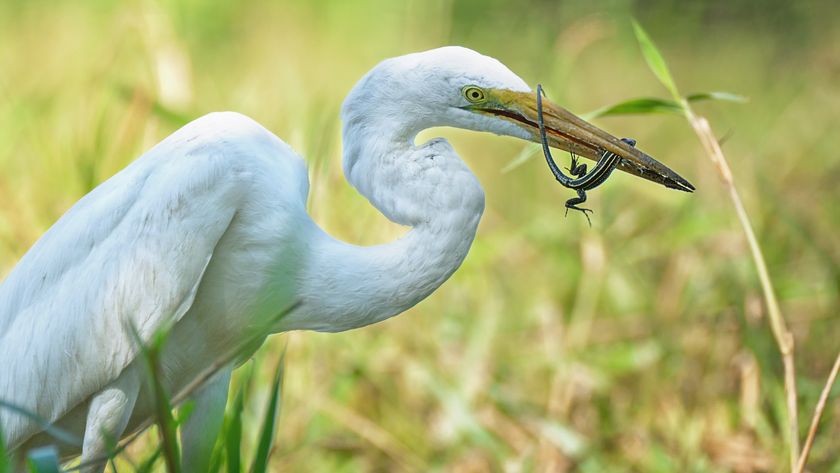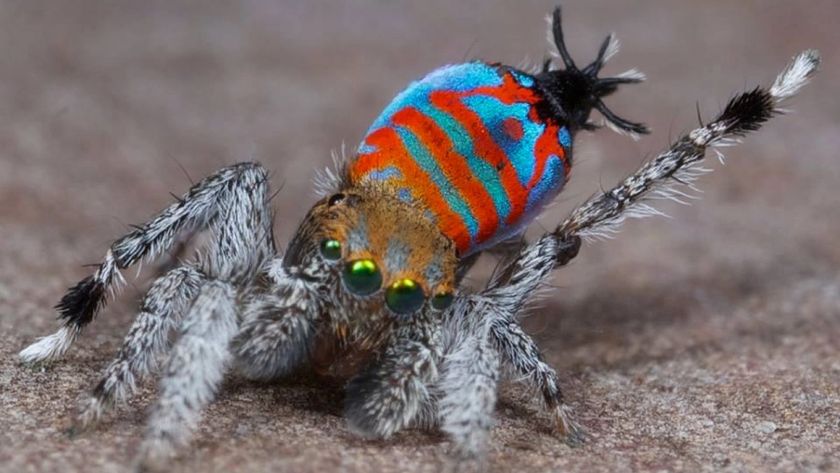
Why Do Birds Sing the Same Song Over and Over?

The twittering of birds can fill any spring or summer day with music: All you have to do is open your window to hear crows "caw," killdears call "kill-deah! kill-deah!" and chickadees sing "chickadee-dee-dee."
But come back an hour later, and you'll still hear them singing the same song, repeatedly. That's because they're hard at work. These avian singers tend to be male, and are crooning their hearts out to guard their territory and attract a mate, said Gail Buhl, education program manager at the Raptor Center at the University of Minnesota.
On the territorial front, the melody says, "This is my area and I'm letting everyone else, especially every other male in the area, know that this is my space," Buhl told Live Science. [Does Wedding Rice Make Birds Explode?]
Other animals mark their territory by urinating or by rubbing their scent everywhere. Even people mark areas with fences. But "birds don't do it that way, they will sing," Buhl said. "And they will sing that song over and over again."
And, hey, if that song attracts a mate in the process, more power to the male. Granted, there are nearly 10,000 species of birds in the world, and every species is different, but oftentimes the female is the one that picks the mate, not vice versa, Buhl said.
The males' songs basically express, "Hey, females, if you're passing by, listen to me because I've got a beautiful song! I'm a healthy male! You should stop by and check me out!" Buhl told Live Science.
This mating ritual is costly for both sexes, in that it uses energy. While the male is singing, he can't look for food, and his calls make him more visible to predators, Buhl said. For females, it takes a lot of energy to lay eggs and raise young, so she wants to be sure she chooses the right mate before putting all her eggs in one basket, so to speak.
Sign up for the Live Science daily newsletter now
Get the world’s most fascinating discoveries delivered straight to your inbox.
Once the chicks hatch, people might hear another repetitive bird note. When chicks are hungry, they often call to their parents for food — saying something along the lines of, "Mom, I'm hungry! I'm over here!" Buhl said.
If this call sounds annoying, that's because it's meant to be, she said. Just like a seat-belt buzzer, the call is designed to get attention, and fast.
During the winter, birds often sing fewer notes, or just one note, to each other. These notes are simply a way to alert the flock of their whereabouts and to announce whether there's any food nearby, Buhl said.
Interestingly, just like a New Yorker can sound different from a Southerner, the same species of birds living in different areas can have different dialects.
"It usually happens if you have big physical barriers, like mountains [in the way]," Buhl said. "Over time, their song changes just a little bit."
So if you're on vacation and hear a slightly different chickadee-dee-dee song, know that it's likely the same species, but with a different dialect, she said.
Follow Laura Geggel on Twitter @LauraGeggel. Follow Live Science's Life's Little Mysteries @LLMysteries, Facebook & Google+.

Laura is the archaeology and Life's Little Mysteries editor at Live Science. She also reports on general science, including paleontology. Her work has appeared in The New York Times, Scholastic, Popular Science and Spectrum, a site on autism research. She has won multiple awards from the Society of Professional Journalists and the Washington Newspaper Publishers Association for her reporting at a weekly newspaper near Seattle. Laura holds a bachelor's degree in English literature and psychology from Washington University in St. Louis and a master's degree in science writing from NYU.











